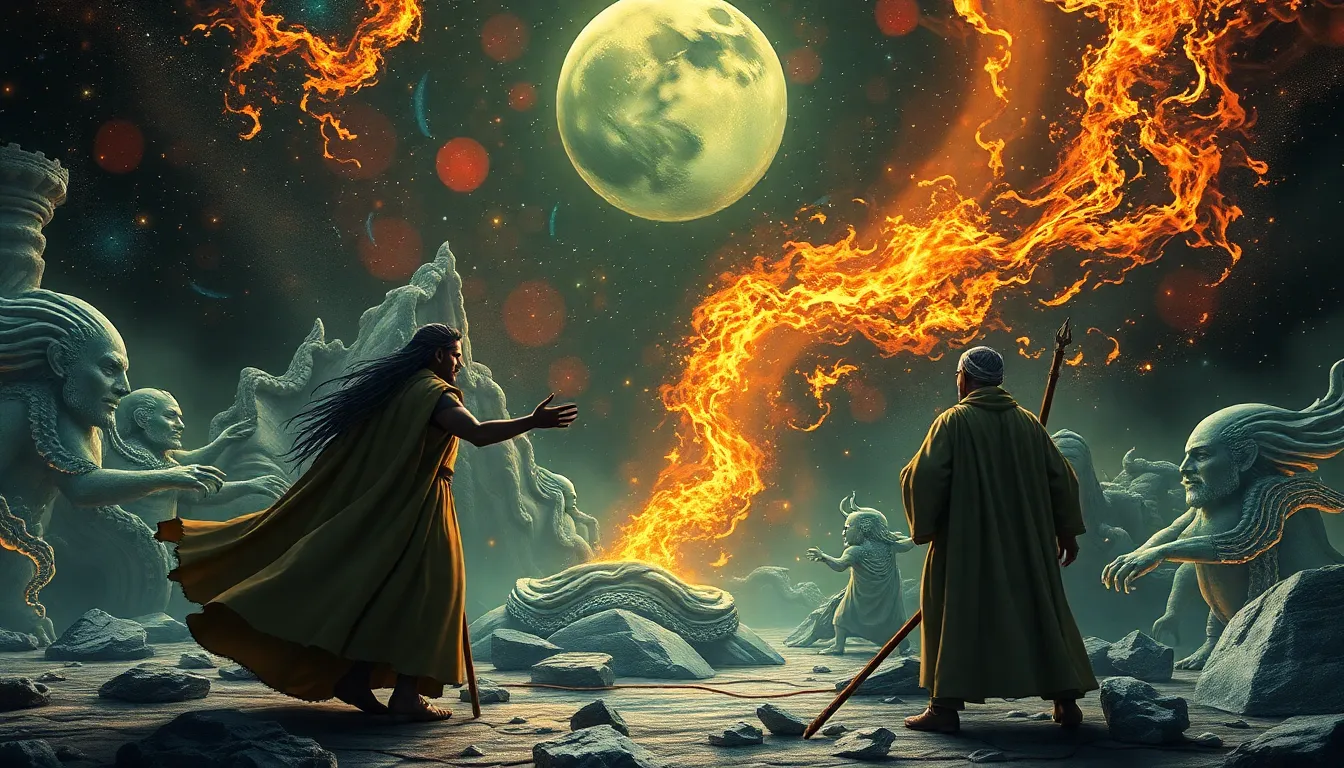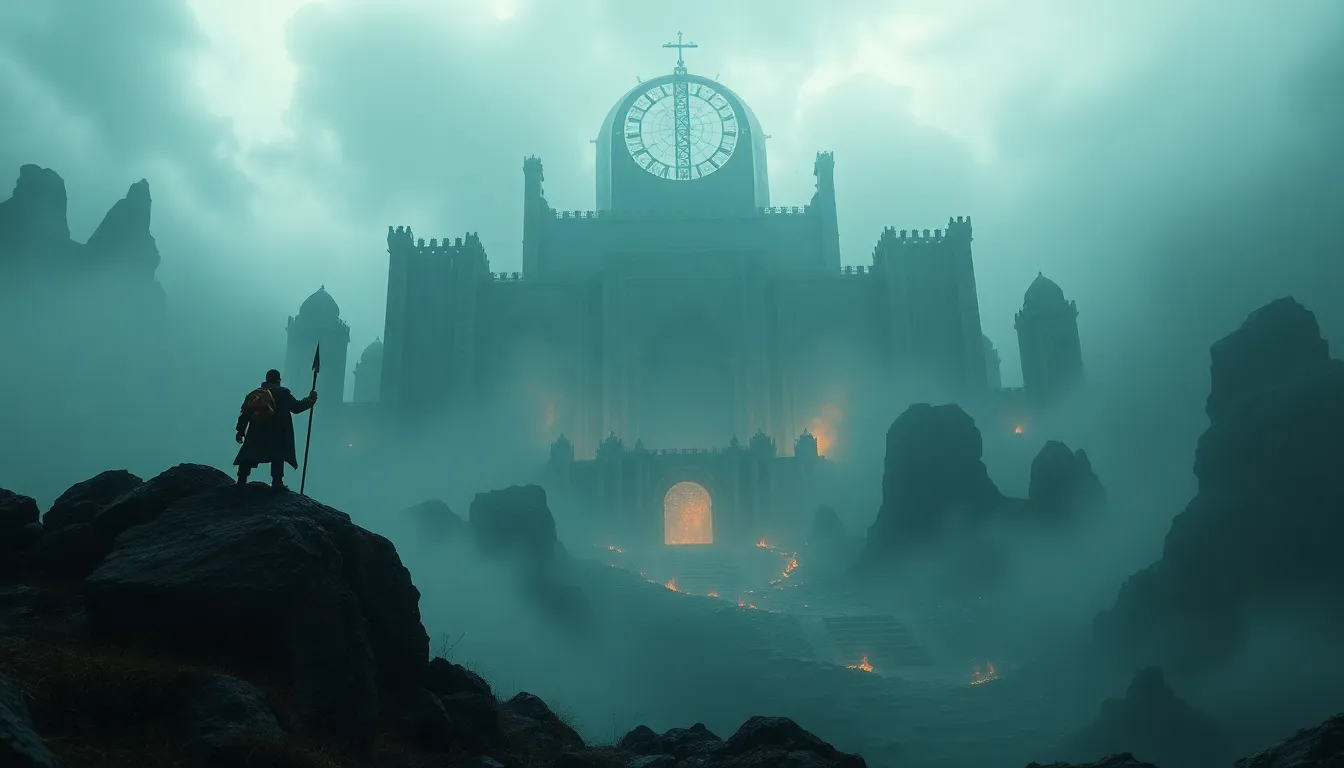The Lost Artifacts of Atlantis: Myths and Mysteries
I. Introduction
Atlantis, a legendary island first mentioned by the ancient Greek philosopher Plato, has captured the imaginations of scholars, adventurers, and the general public for centuries. Described as a powerful and advanced civilization, Atlantis is often associated with themes of lost knowledge, advanced technology, and tragic downfall. This article aims to explore the myths and mysteries surrounding the lost artifacts of Atlantis, examining their significance in both historical and modern contexts.
II. The Origins of the Atlantis Myth
The tale of Atlantis originates from two of Plato’s dialogues, namely Timaeus and Critias. In these works, Plato describes a utopian society that existed approximately 9,000 years before his time, which was ultimately destroyed in a cataclysmic event.
A. Plato’s writings: Timaeus and Critias
Plato’s account presents Atlantis as a powerful naval force that fell out of favor with the gods due to its hubris. His descriptions serve not only as a cautionary tale but also as a philosophical exploration of ideal societies.
B. Historical context of Atlantis in ancient Greek culture
In ancient Greece, Atlantis was viewed through the lens of moral and ethical lessons, reflecting the societal values and fears of the time. The story served as a backdrop for discussions on governance, ethics, and human nature.
C. Theories on the potential real-world inspirations for Atlantis
- The Minoan civilization on the island of Crete, which experienced a catastrophic volcanic eruption.
- The Thera eruption, which destroyed the island of Santorini and its advanced culture.
- Other ancient societies that faced natural disasters, leading to the mythological narrative of Atlantis.
III. Characteristics of Atlantis
Plato depicted Atlantis as a remarkable civilization, rich in resources and advanced technology. This section explores the key characteristics that define the mythical Atlantis.
A. Description of the advanced civilization
Atlantis is often described as a highly advanced society with remarkable architecture, complex societal structures, and a well-organized political system. It was believed to be a center of cultural and technological innovation.
B. Technological achievements and societal structure
- Advanced engineering, including impressive structures and irrigation systems.
- A complex legal system and governance that emphasized balance and harmony.
- Innovations in agriculture and trade that allowed the society to flourish.
C. Theories about the location of Atlantis
Theories regarding the location of Atlantis vary widely, with proposed sites including:
- The Mediterranean Sea, particularly around Santorini and Crete.
- The Caribbean, speculating on a lost civilization in the Bermuda Triangle.
- The Antarctic region, suggesting it may have been positioned on a now-submerged continent.
IV. Legendary Artifacts of Atlantis
The search for Atlantis is often intertwined with the quest for legendary artifacts that are believed to hold the secrets of this lost civilization.
A. The Crystal Skulls: Myth vs. Reality
Crystal skulls have captured the public’s imagination as potential Atlantean artifacts. While many have been debunked as modern forgeries, the allure of their mystical properties persists.
B. The Golden Plates: What they symbolize
Some accounts speak of golden plates inscribed with the wisdom of Atlantis. These plates symbolize the knowledge and enlightenment that Atlanteans purportedly possessed.
C. The Atlantean Power Source: Speculations on its nature
Theories regarding a powerful energy source that fueled Atlantis abound. Some suggest it was based on advanced technologies unknown to modern science, while others liken it to mythical artifacts like the Philosopher’s Stone.
V. Archaeological Pursuits: Searching for Atlantis
The quest for Atlantis has prompted numerous archaeological pursuits aimed at uncovering evidence of its existence.
A. Key expeditions and discoveries related to Atlantis
- The 19th-century exploration of the Mediterranean by archaeologists like Heinrich Schliemann.
- Modern underwater explorations using advanced technology to search for submerged ruins.
B. Notable archaeological sites linked to the Atlantis myth
Sites such as:
- Knossos in Crete, showcasing advanced Minoan civilization.
- Helike, a Greek city that was submerged after an earthquake.
C. Challenges faced by archaeologists in the pursuit of truth
Archaeologists face numerous challenges, including:
- Natural disasters obscuring evidence of ancient civilizations.
- Political and logistical issues in conducting archaeological digs.
- The sheer vastness of the oceans and the limitations of current technology.
VI. The Role of Atlantis in Popular Culture
The myth of Atlantis has permeated popular culture, influencing literature, films, and art.
A. Influence of Atlantis on literature and films
Numerous works of fiction draw inspiration from the story of Atlantis, including:
- Jules Verne’s Journey to the Center of the Earth.
- The animated film Atlantis: The Lost Empire.
B. The portrayal of Atlantean artifacts in modern media
Atlantean artifacts often symbolize lost knowledge and power, appearing in various media forms, from video games to blockbuster movies.
C. How these representations shape public perception
These portrayals have helped to shape a romanticized view of Atlantis, influencing public interest and belief in the possibility of its existence.
VII. Scientific Perspectives on Atlantis
Scientists and researchers have approached the Atlantis myth from various angles, providing intriguing insights into the possibility of submerged cities.
A. Geological evidence supporting the existence of submerged cities
Geological studies have uncovered evidence of ancient civilizations that may have been lost to rising sea levels and natural disasters.
B. The role of mythology in understanding ancient civilizations
Mythological stories like that of Atlantis can provide context for understanding the cultural and social dynamics of ancient societies.
C. Modern theories about the fate of Atlantis
Current theories suggest that Atlantis may not have been a singular location but rather a representation of multiple ancient societies that experienced similar fates.
VIII. The Mystique of Lost Artifacts
The quest for lost artifacts from Atlantis reflects humanity’s deep-seated desire to uncover the mysteries of the past.
A. The allure of discovering lost civilizations
The discovery of lost civilizations ignites the imagination and fuels cultural narratives about human history and achievement.
B. Psychological and cultural impacts of legendary artifacts
Artifacts like those of Atlantis often symbolize humanity’s quest for meaning, knowledge, and connection to the past.
C. The intersection of fact and fiction in the search for Atlantis
This intersection blurs the lines between history and mythology, making the search for Atlantis a captivating narrative.
IX. Contemporary Searches and Discoveries
Recent advancements in technology have reignited interest in the search for Atlantis and its artifacts.
A. Recent advancements in underwater archaeology
Technological innovations such as sonar mapping and remotely operated vehicles (ROVs) have expanded the possibilities for underwater exploration.
B. Ongoing projects exploring the myths of Atlantis
Several projects are currently investigating potential sites linked to the Atlantis myth, employing a multidisciplinary approach.
C. Notable findings and their implications for the Atlantis narrative
Recent discoveries continue to spark debate about the existence of advanced ancient civilizations, reshaping our understanding of human history.
X. Conclusion
The myth of Atlantis and its lost artifacts hold significant cultural and historical value, influencing countless generations. The enduring legacy of Atlantis serves as a reminder of humanity’s fascination with the unknown and the quest for understanding our past. As research continues and technology advances, the future of Atlantis exploration remains vibrant, inviting both skepticism and wonder in the pursuit of truth.



